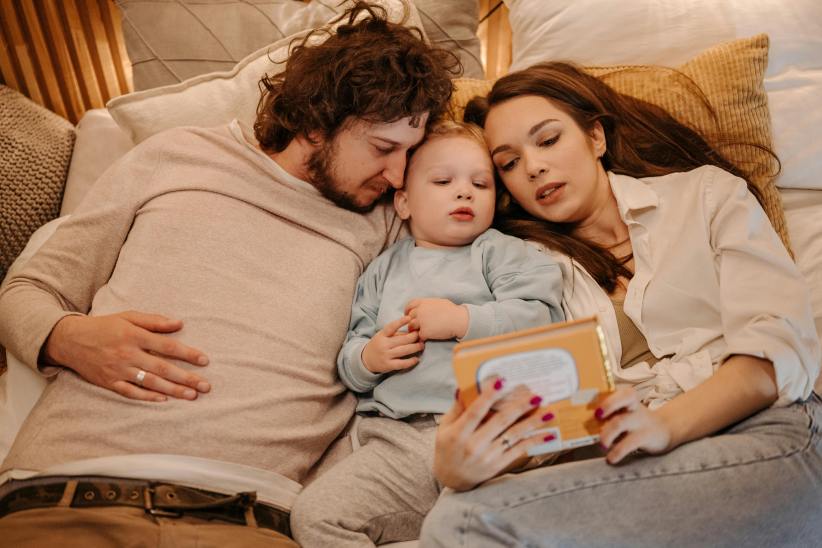
Read to Your Babies and Toddlers for Lifelong Benefits, Says New Pediatric Update
If you read to your babies and toddlers, you are giving them way more than just a bedtime story!
When my first daughter was a baby, I snuggled up with her one day in my hazy postpartum sleep deprivation and started reading to her from one of the picture books my mom had given me. It soon became a nightly habit, one that I continued until she could read — and even after.
Naturally, when children are old enough to understand language and show an interest in books, reading to your children is a well-known benefit. Yet when I first started reading to my baby, I wondered if it made any sense since, as a newborn, my daughter surely couldn’t understand what I was saying.
It turns out that I was on the right track, and reading to your toddlers and even babies has immense benefits that can last a lifetime.
American Academy of Pediatrics Wants You to Read to Your Babies and Young Children
The American Academy of Pediatrics (AAP), published a new policy statement on September 29 in the journal Pediatrics online (the new policy statement and full report will be published in the December 2024 print issue of Pediatrics). It is the first update to AAP recommendations since 2014, and is based on extensive research into early childhood brain development.
“Reading together with young children weaves joyful language and rich interactive moments into the fabric of daily life,” says lead author, Perri Klass, MD, a Professor of Journalism and Pediatrics at New York University.
“As a pediatrician and parent, I suggest making books your bedtime routine, using them to connect and wind down after a busy day, and generally building them into life with a young child,” says Klass. “It will strengthen the bonds that hold you together, and build your child’s developing brain.”
Psst… Check Out What Parents Need to Know About What Their Kids Are Reading
Dr. Perri is also the National Medical Director of Reach Out and Read, a program that encourages early literacy in kids through pediatric care. At routine check-ups, pediatricians give parents tips on reading aloud and suggestions for great children’s books.
According to AAP, reading to your kids should start ideally when they are newborns. Pediatricians even encourage parents to read to their babies in the NICU to foster brain development and bonding.
Physical Books Are Encouraged
They also stress that reading physical books beats books downloaded onto a screen. There is an extra bonding that comes from turning the page, looking at the pictures, and enjoying the story together. Pediatricians say that digital books don’t quite create the same kind of parent-child interactions.
If parents use screen-based reading or audiobooks, they should make it a point to talk and share thoughts with their children about what they’re reading and ask them to share their own. This interaction helps build connections and also supports comprehension and learning.
Psst… Check Out Read Across America Day: How to Encourage Kids to Read
Pediatricians urge parents to keep reading until at least their kids reach Kindergarten age, though continuing to read past that age is still recommended. Parents know that even long after kids learn to read on their own, they still love being read to. Another fun activity once your children start learning how to read is to alternate reading each page.
Reading to my kids every single night became a tradition I kept for my next daughter and then my son. Eventually, at times, I read to all three of them. Soon enough they were reading them to me, and years later, we all can recite certain phrases from their favorite stories.
To this day, reading to my kids remains one of my favorite memories.























